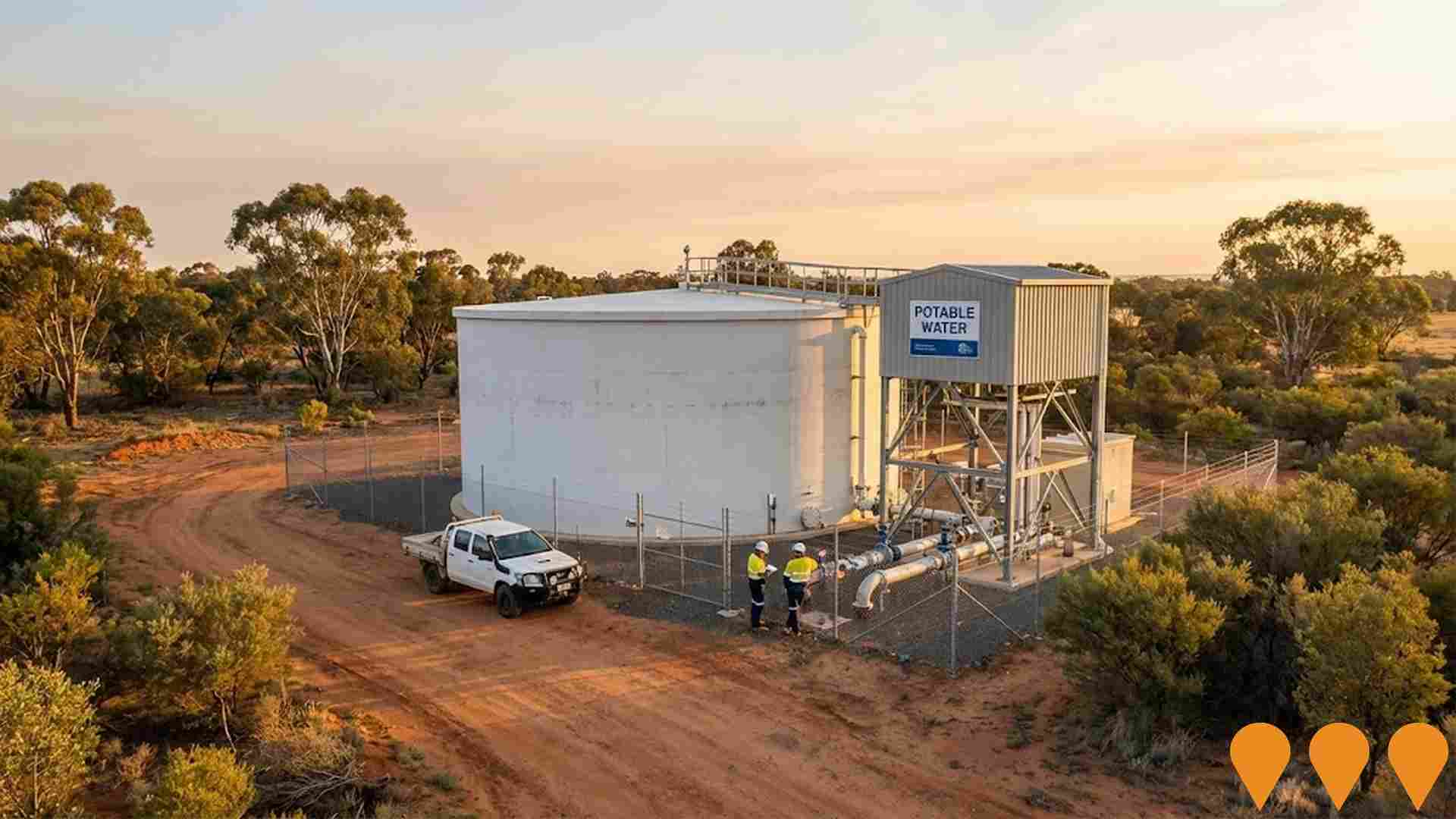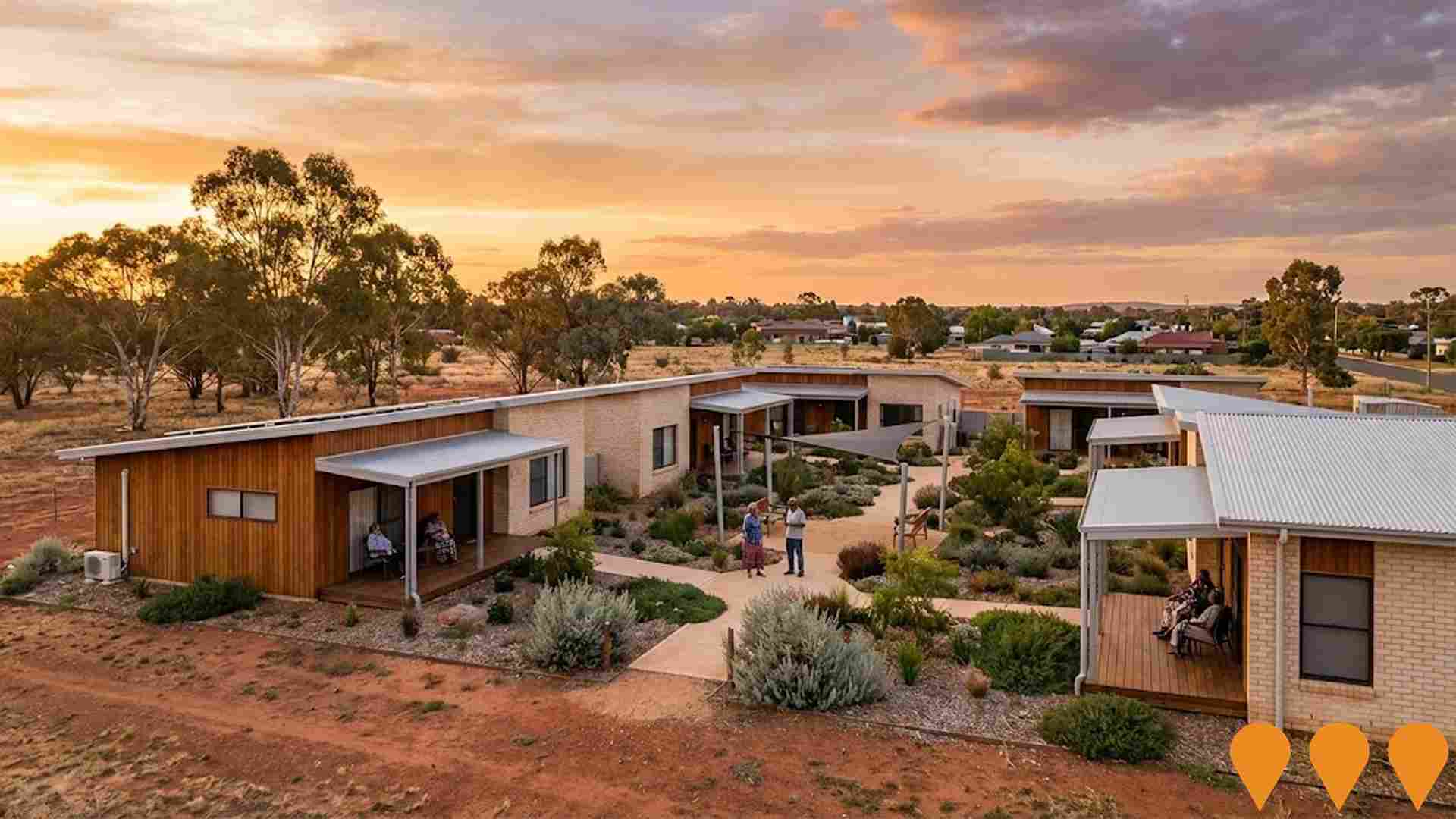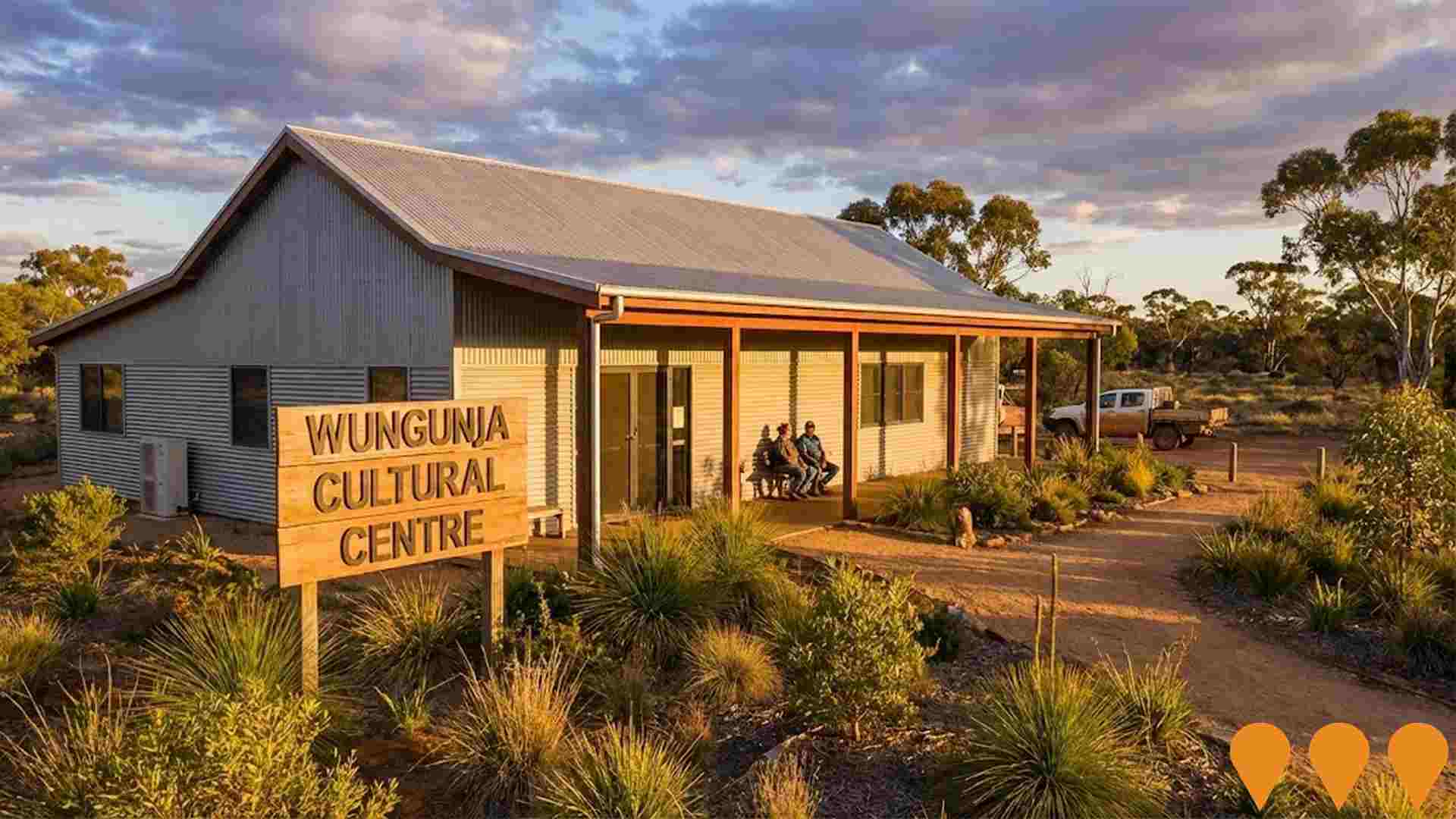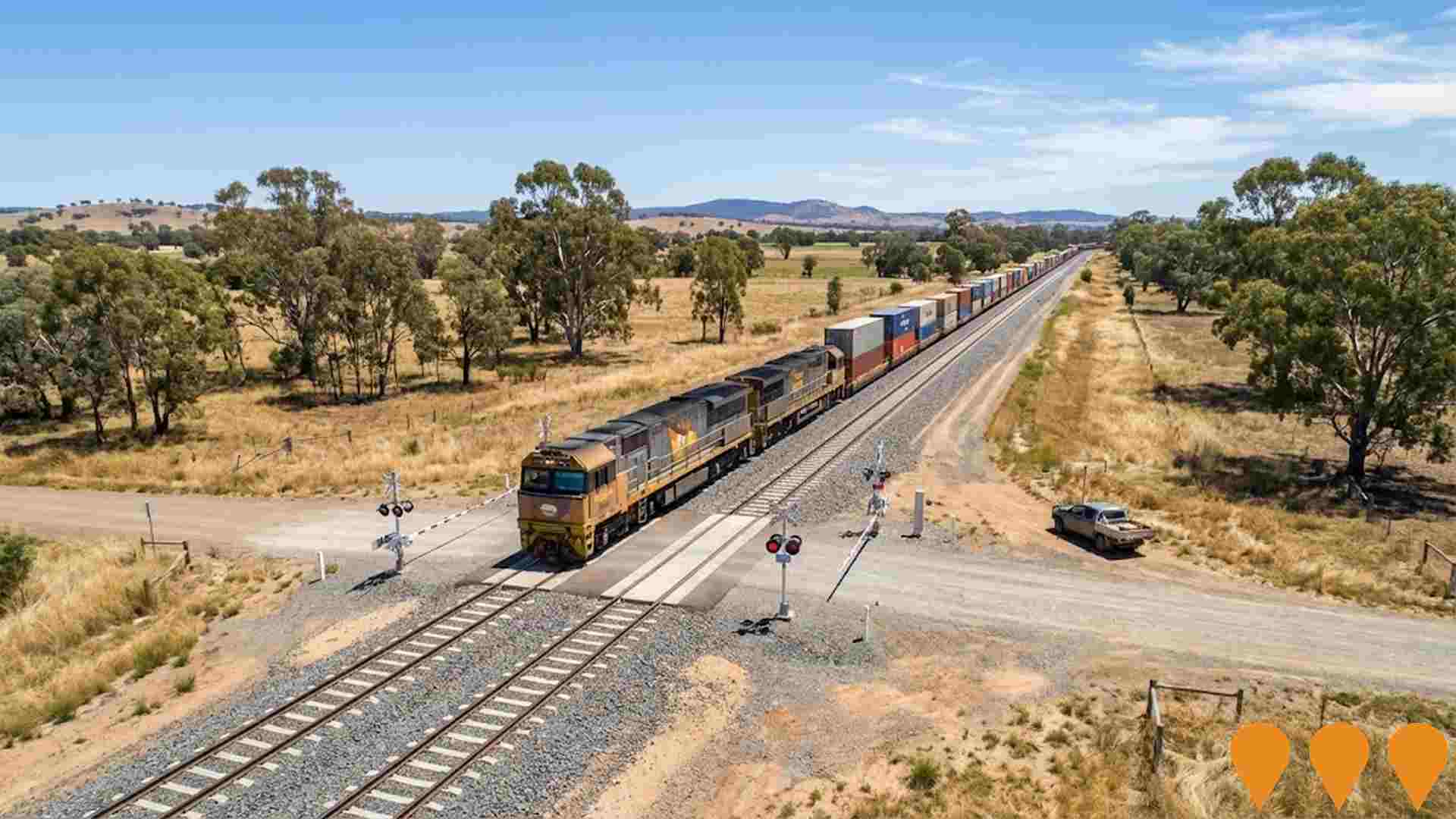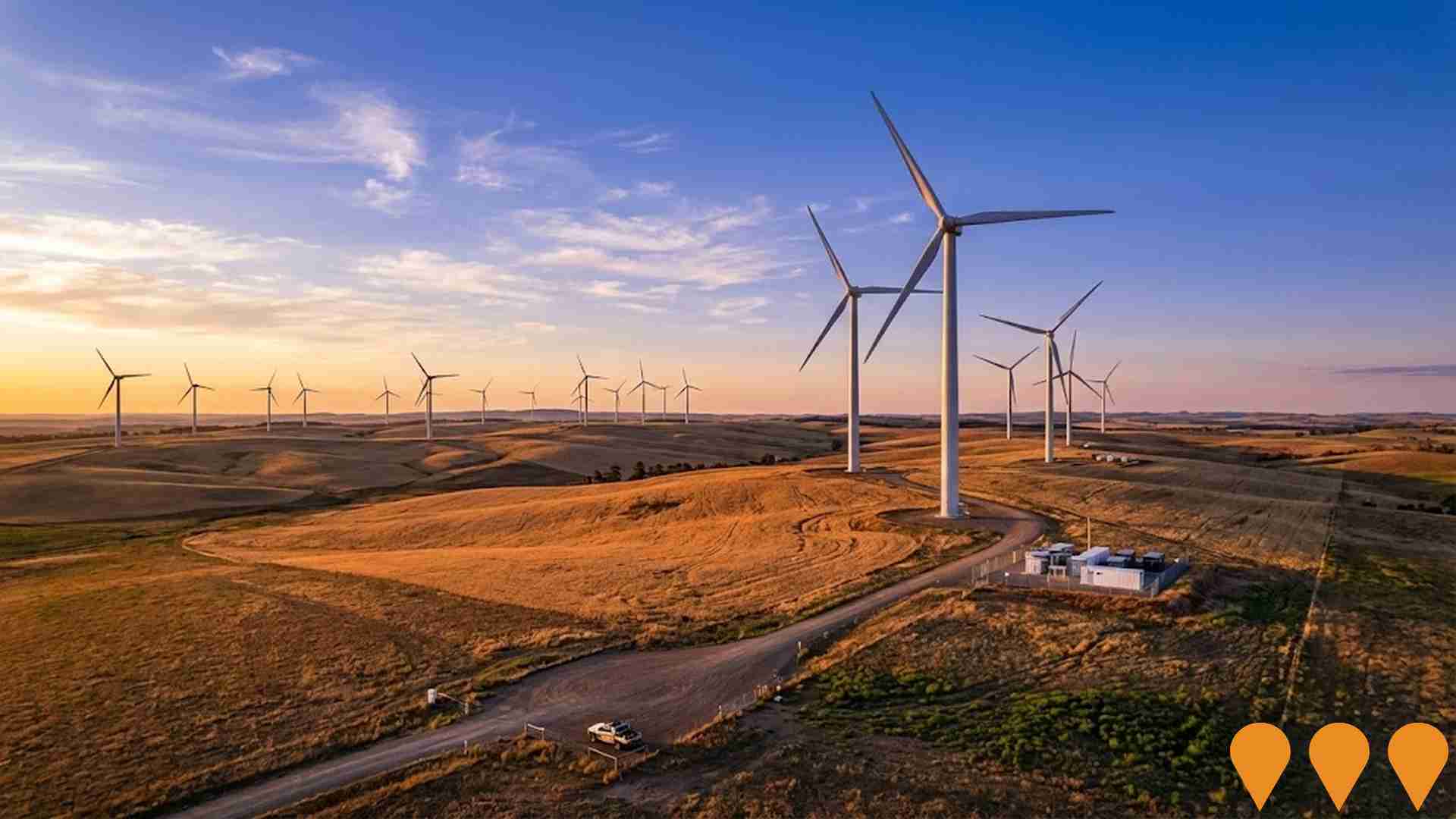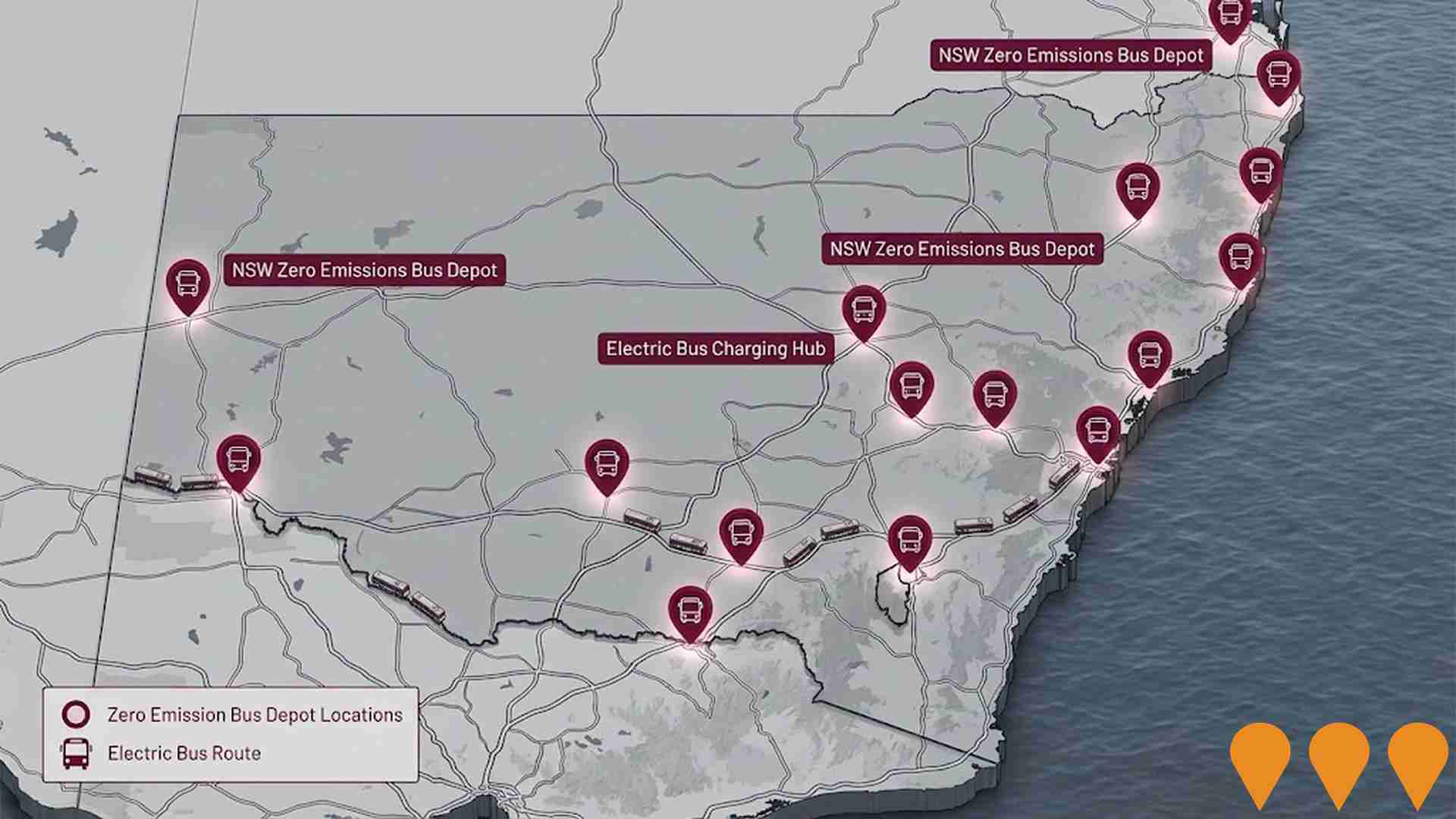Chart Color Schemes
This analysis uses ABS Statistical Areas Level 2 (SA2) boundaries, which can materially differ from Suburbs and Localities (SAL) even when sharing similar names.
SA2 boundaries are defined by the Australian Bureau of Statistics and are designed to represent communities for statistical reporting (e.g., census and ERP).
Suburbs and Localities (SAL) represent commonly-used suburb/locality names (postal-style areas) and may use different geographic boundaries. For comprehensive analysis, consider reviewing both boundary types if available.
est. as @ -- *
ABS ERP | -- people | --
2021 Census | -- people
Sales Activity
Curious about local property values? Filter the chart to assess the volume and appreciation (including resales) trends and regional comparisons, or scroll to the map below view this information at an individual property level.
Find a Recent Sale
Sales Detail
Population
Nyngan - Warren has shown very soft population growth performance across periods assessed by AreaSearch
Nyngan-Warren's population is approximately 4,604 as of November 2025, reflecting an increase of 13 people since the 2021 Census which reported a population of 4,591. This change was inferred from ABS estimated resident population figures of 4,552 in June 2024 and additional validated new addresses since then. The population density ratio is 0.20 persons per square kilometer. Over the past decade, Nyngan-Warren had a compound annual growth rate of -1.4%, outpacing its SA3 area. Overseas migration contributed approximately 54.1% of overall population gains recently. AreaSearch uses ABS/Geoscience Australia projections for each SA2 area released in 2024 with a base year of 2022, and NSW State Government's SA2 level projections for areas not covered by this data, released in 2022 with a base year of 2021.
Growth rates by age group from these aggregations are applied to all areas until 2041. By 2041, Nyngan-Warren's population is projected to decrease by 1,037 persons according to this methodology.
Frequently Asked Questions - Population
Development
The level of residential development activity in Nyngan - Warren is very low in comparison to the average area assessed nationally by AreaSearch
Nyngan-Warren has received approximately 12 dwelling approvals annually. Over the past five financial years, from FY-21 to FY-25, a total of 61 homes were approved, with an additional one approved so far in FY-26. The average construction value for new properties is $389,000.
This year has seen $11.7 million in commercial development approvals. Nyngan-Warren's construction activity per person is 99.0% higher than the Rest of NSW, indicating ample choice for buyers despite recent easing. Nationally, however, activity is lower, suggesting market maturity and potential development constraints. New developments consist of 78.0% detached dwellings and 22.0% attached dwellings, preserving low density while catering to space-seeking buyers. This marks a shift from the current 93.0% houses, possibly due to land availability and evolving housing preferences. The area has an estimated 923 people per dwelling approval, reflecting its quiet development environment.
With stable or declining population expected, Nyngan-Warren may experience reduced housing pressure, benefiting buyers.
Frequently Asked Questions - Development
Infrastructure
Nyngan - Warren has emerging levels of nearby infrastructure activity, ranking in the 27thth percentile nationally
AreaSearch identified 17 projects that could impact the area significantly. Key initiatives include the Macquarie-Castlereagh Alluvium Water Resource Plan, Newell Highway Upgrade, Trangie Town Centre Plan, and Trangie-Nevertire Syphon Project. The following list details those most likely to be relevant.
Professional plan users can use the search below to filter and access additional projects.
INFRASTRUCTURE SEARCH
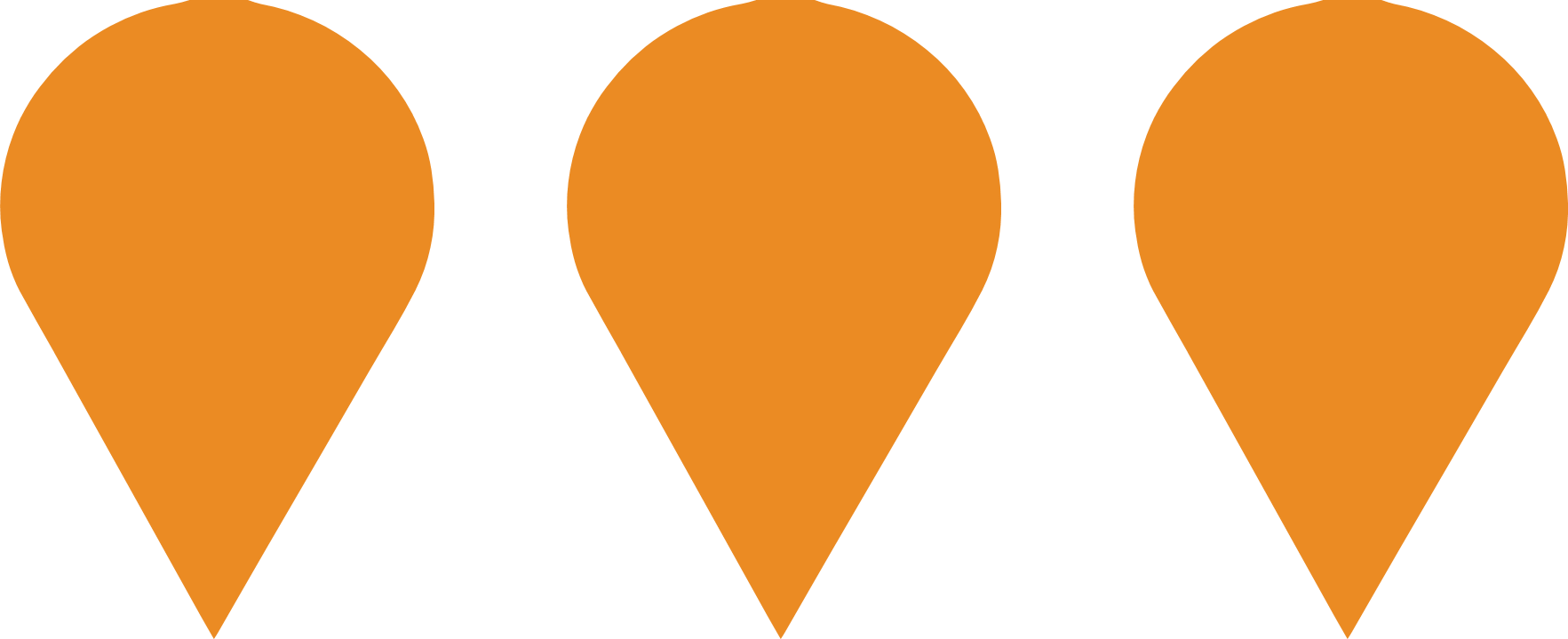 Denotes AI-based impression for illustrative purposes only, not to be taken as definitive under any circumstances. Please follow links and conduct other investigations from the project's source for actual imagery. Developers and project owners wishing us to use original imagery please Contact Us and we will do so.
Denotes AI-based impression for illustrative purposes only, not to be taken as definitive under any circumstances. Please follow links and conduct other investigations from the project's source for actual imagery. Developers and project owners wishing us to use original imagery please Contact Us and we will do so.
Frequently Asked Questions - Infrastructure
Central-West Orana Renewable Energy Zone
NSW's first Renewable Energy Zone, a 20,000 sq km area centered around Dubbo and Dunedoo. The project involves a new high voltage transmission network and energy hubs, unlocking at least 4.5 GW of network capacity for up to 7.7 GW of renewable generation and storage projects. The project received NSW planning approval in June 2024, with construction continuing through to 2030. It is expected to power around 2 million homes, generate an estimated $20 billion in private investment, and support around 5,000 construction jobs at its peak.
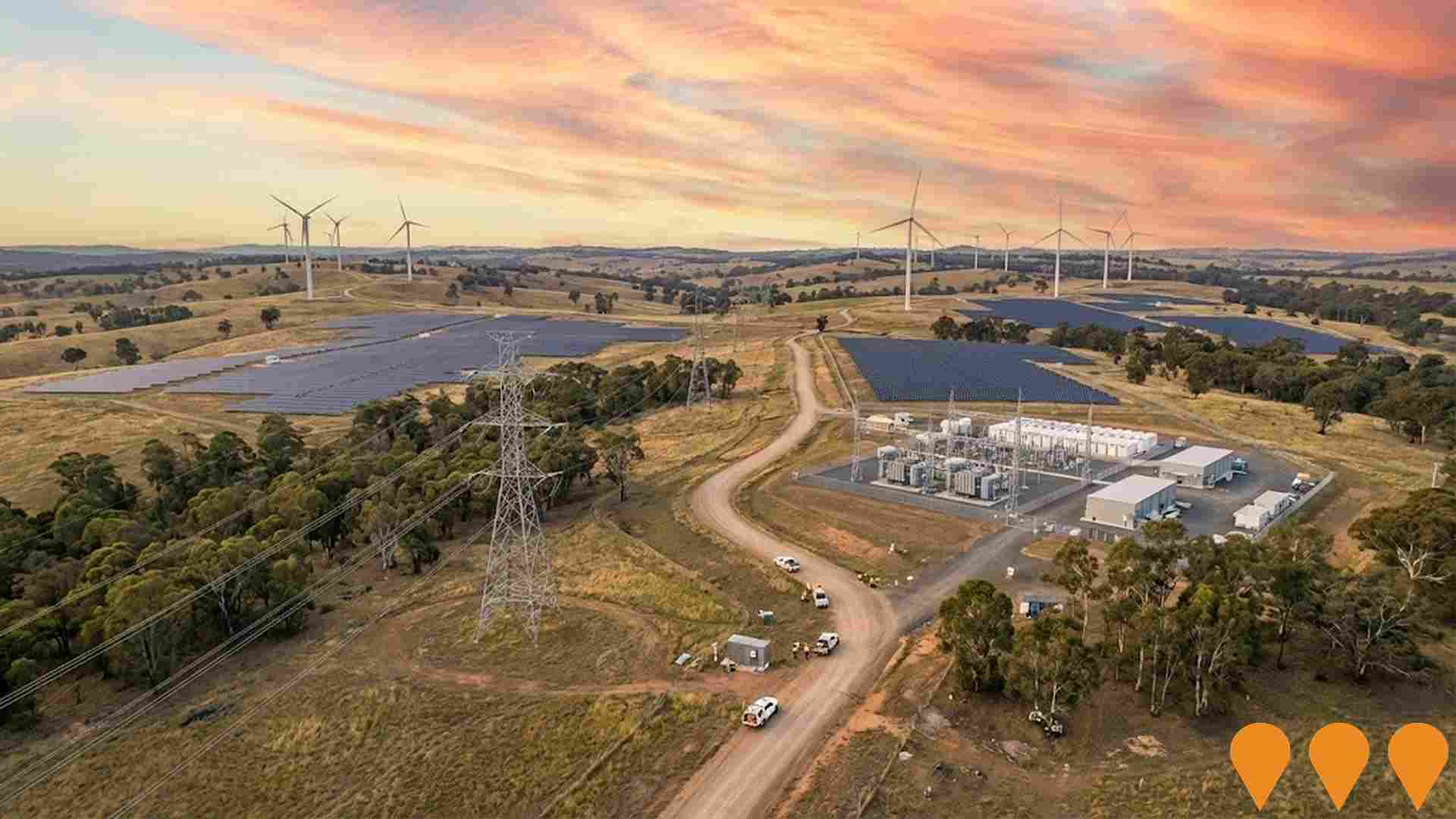
Nyngan to Cobar Pump Stations Project
The project involves the construction of two new pump stations at Nyngan and Hermidale to replace aging infrastructure and ensure reliable water supply for the Cobar region. The new stations are critical to prevent system failure and will safeguard pumping infrastructure for at least 50 years. The original Stage 1 project which included pump stations and a pipeline replacement has been split; the pipeline replacement (Stage 2) is currently on hold due to substantial cost escalations.
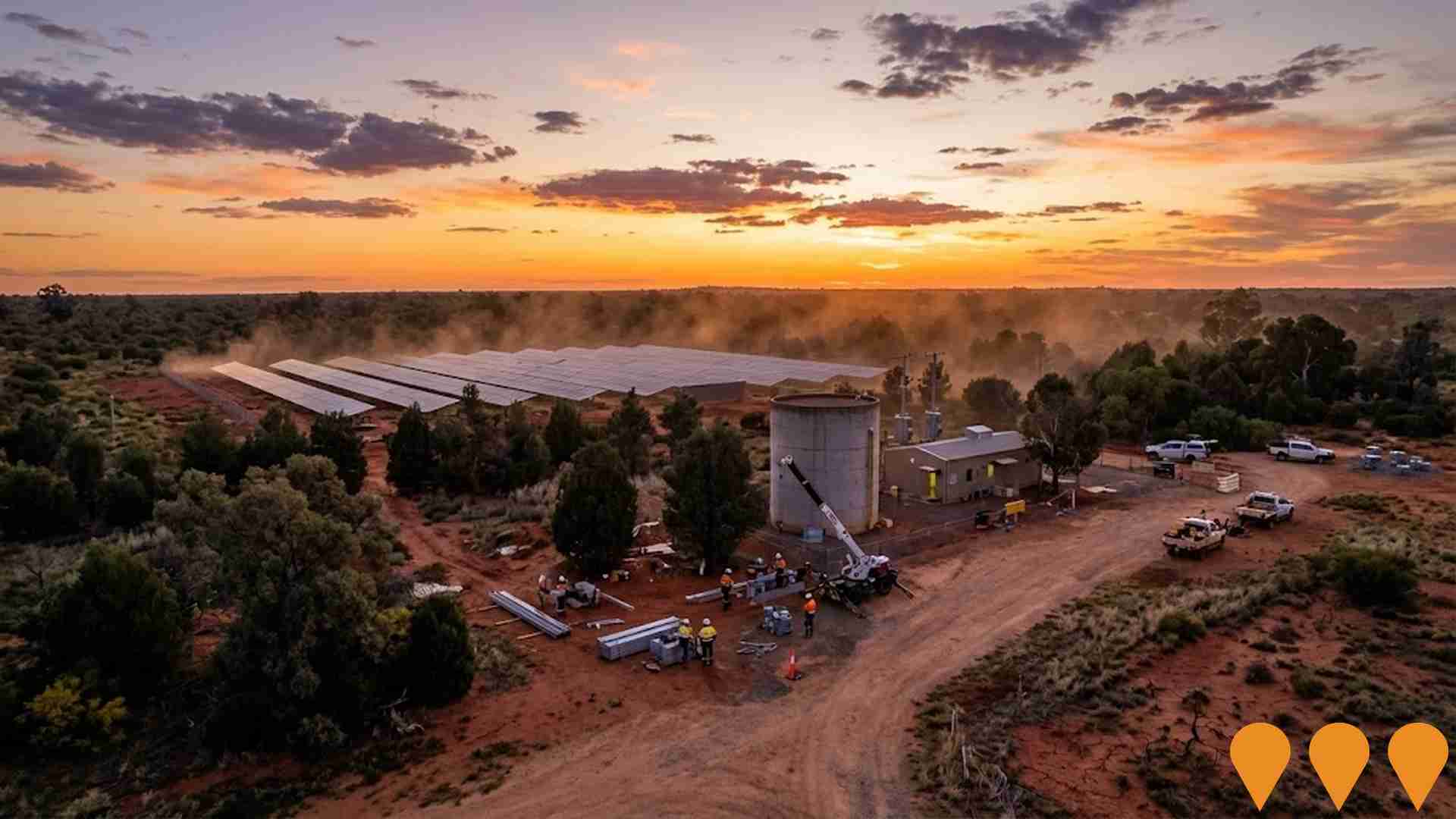
Inland Rail - Narromine to Narrabri
The Narromine to Narrabri section is the longest segment of the Inland Rail project, comprising approximately 306km of new single-track greenfield rail corridor in north-western New South Wales. It connects the completed Parkes to Narromine section with the Narrabri to North Star section (under construction). Designed for 1,800m double-stacked freight trains, key features include seven crossing loops (up to 2.2km long), 75 new bridges and viaducts, 49 new public level crossings, millions of cubic metres of earthworks, thousands of concrete culvert drains, road realignments, and utility relocations. The project received NSW Government approval in February 2023 and Australian Government EPBC approval in January 2024. As of November 2025, the project remains in planning and preparation with ongoing field investigations (geotechnical, biodiversity, cultural heritage), design refinement, and landowner consultations; construction has not yet commenced.

NSW Heavy Vehicle Rest Stops Program (TfNSW)
Statewide Transport for NSW program to increase and upgrade heavy vehicle rest stopping across NSW. Works include minor upgrades under the $11.9m Heavy Vehicle Rest Stop Minor Works Program (e.g. new green reflector sites and amenity/signage improvements), early works on new and upgraded formal rest areas in regional NSW, and planning and site confirmation for a major new dedicated rest area in Western Sydney. The program aims to reduce fatigue, improve safety and productivity on key freight routes, and respond to industry feedback collected since 2022.
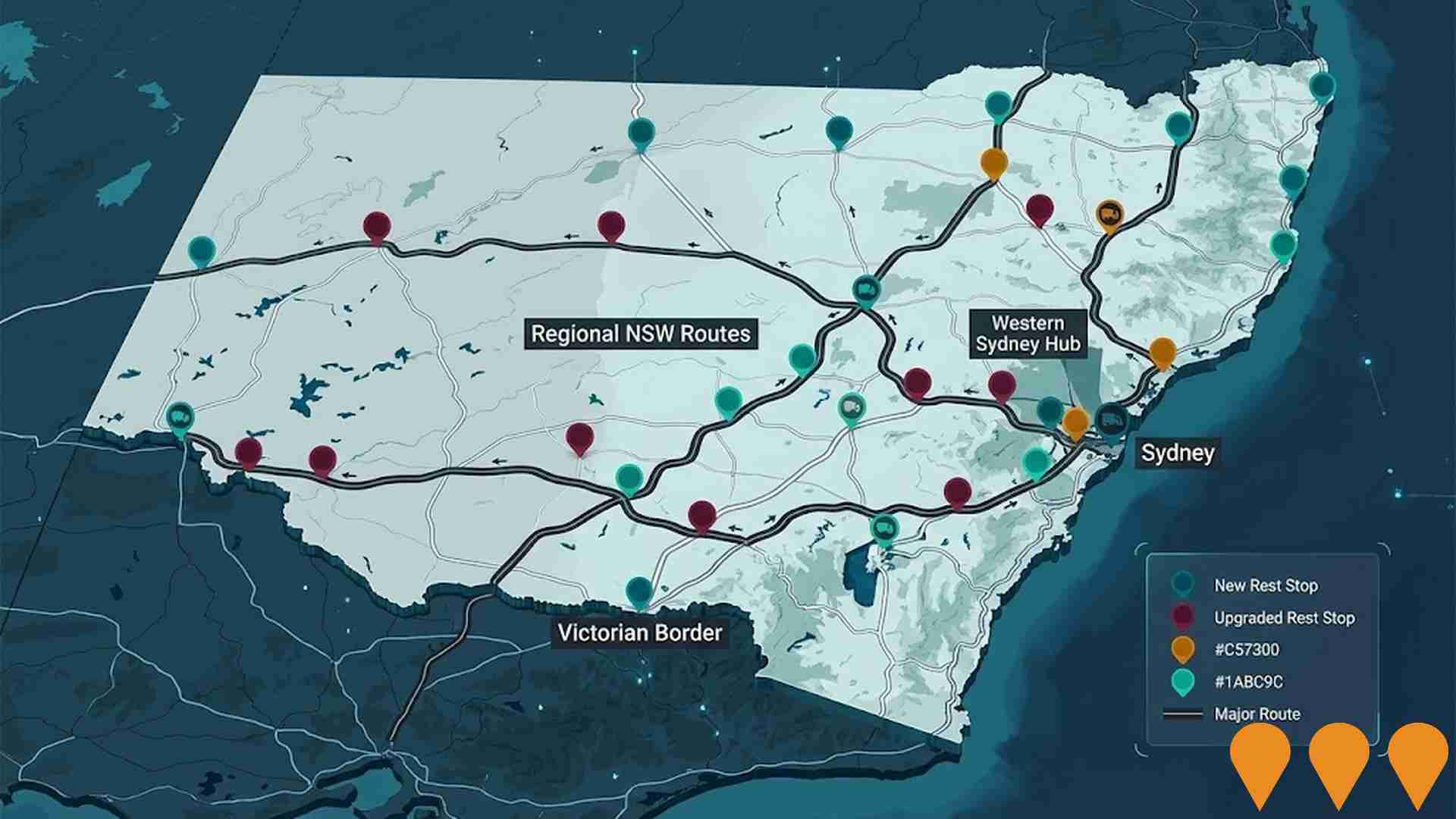
Macquarie-Castlereagh Alluvium Water Resource Plan
A water resource plan for the Macquarie-Castlereagh Alluvium, focusing on the sustainable management of water resources. It incorporates Traditional Owner knowledge, values, and uses in water planning to ensure equality in objectives and outcomes.
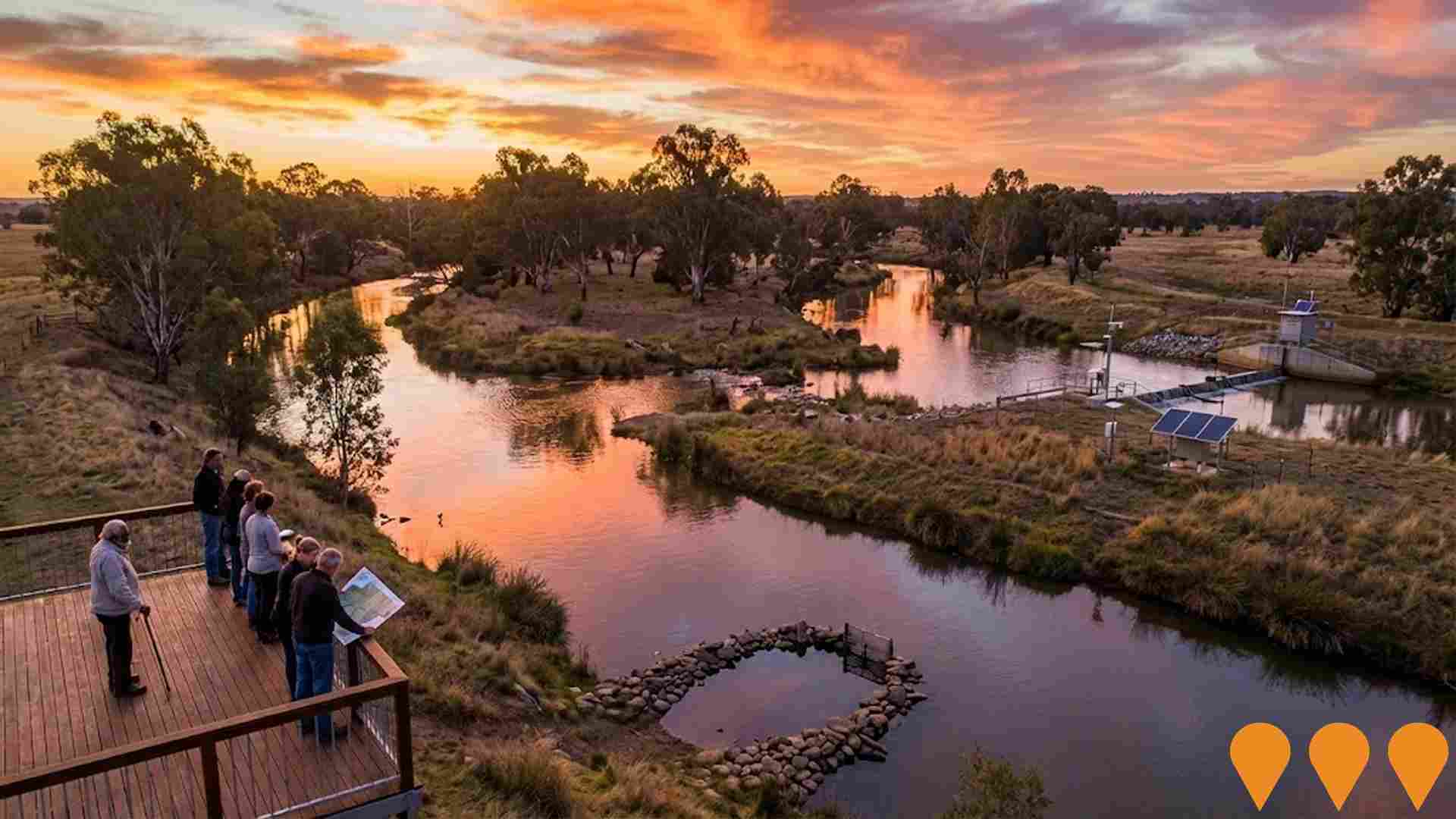
Newell Highway Upgrade
Upgrade of Newell Highway to enhance Melbourne-Brisbane freight route for safety, efficiency, and HPV access amidst growth in freight, tackling congestion, flooding, and road wear.
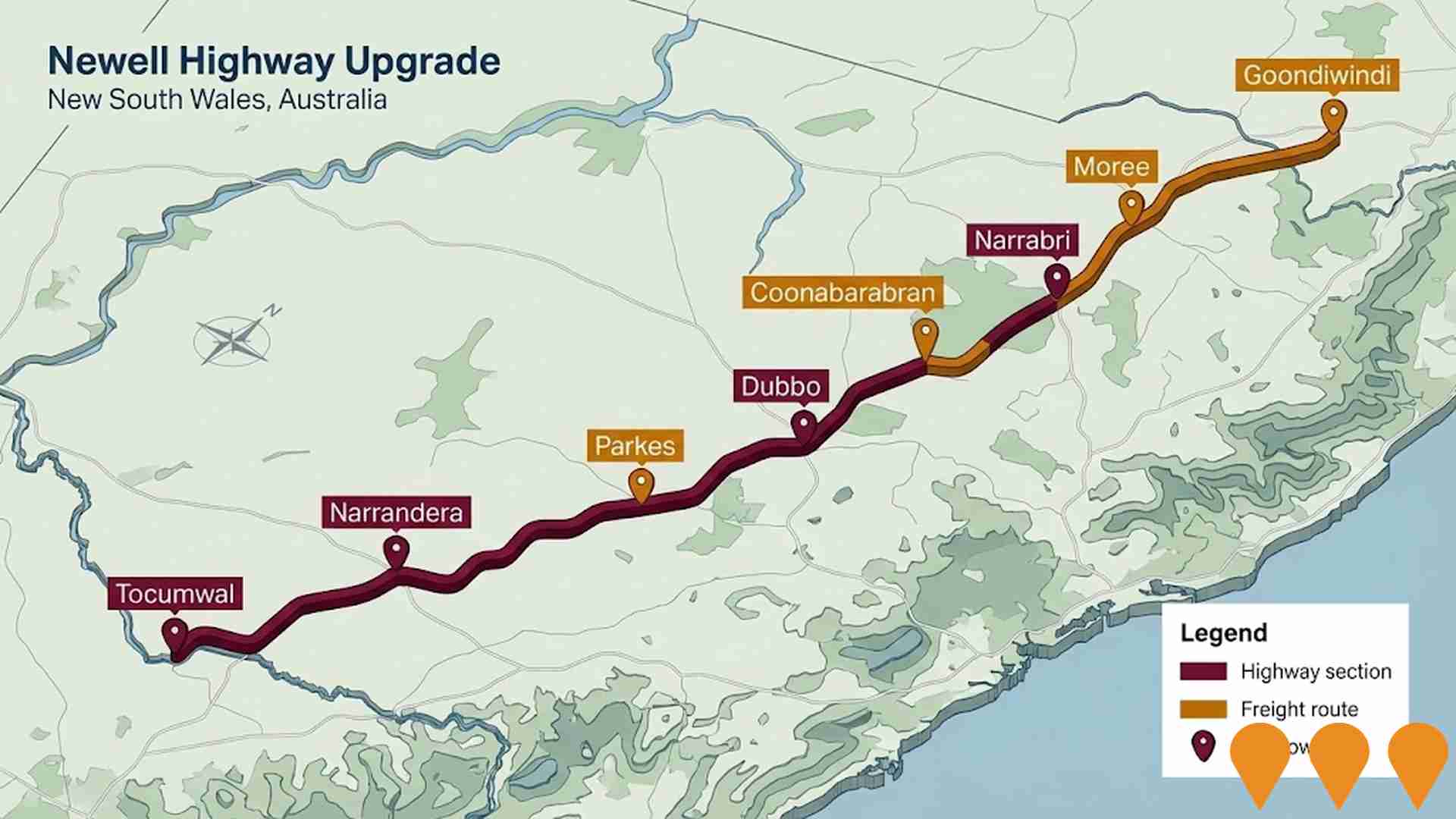
Trangie Town Centre Plan
A plan developed by the Narromine Shire Council for the beautification and improvement of the Trangie town centre.
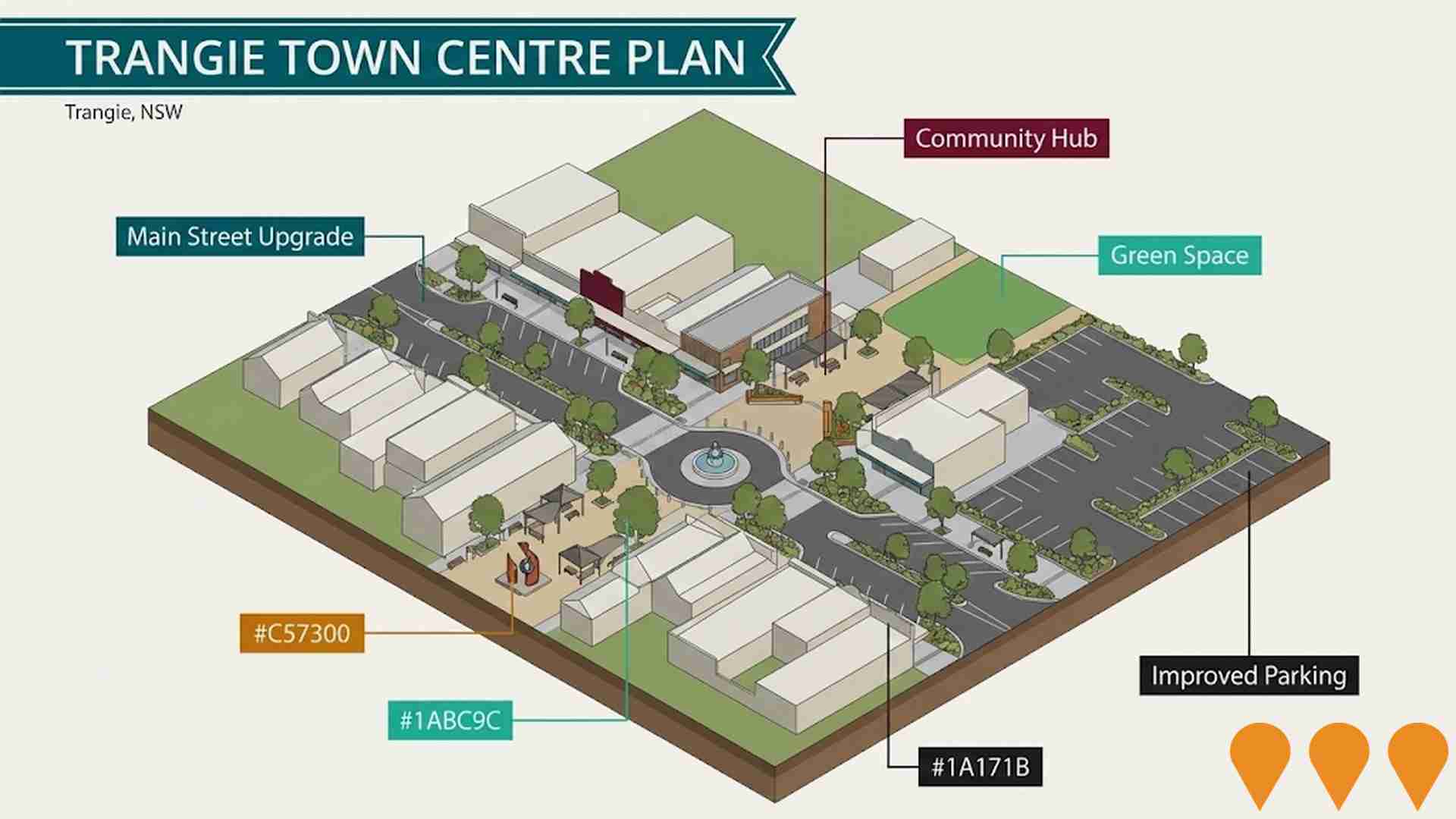
Trangie-Nevertire Syphon Project
A $5.2 million water security project aimed at modernizing the Trangie-Nevertire Irrigation Scheme's syphon. The project will reduce water losses and system failures by replacing pipeline, lining the channel to reduce erosion and conserve water, and installing an automated debris screen.
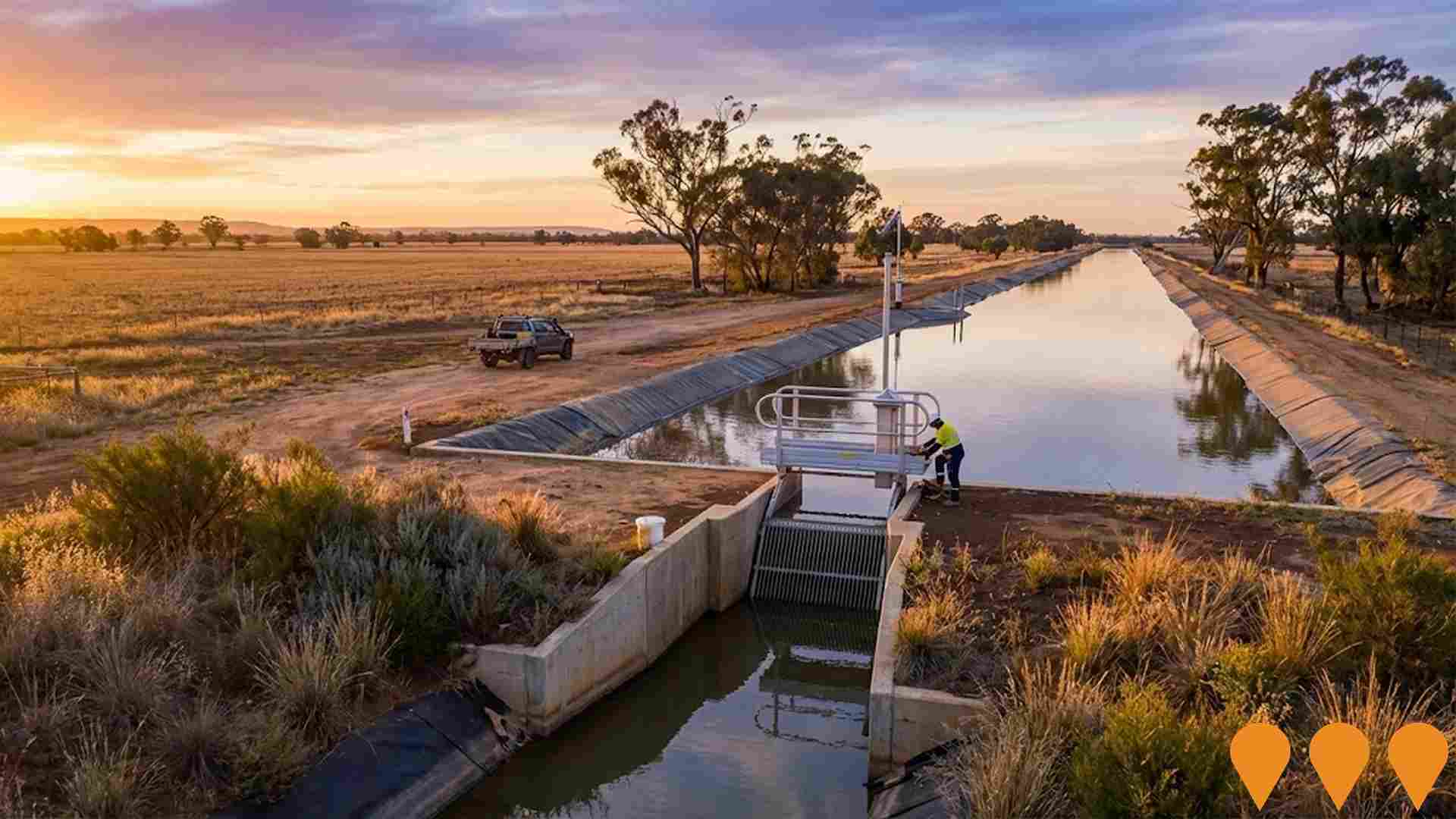
Employment
While Nyngan - Warren retains a healthy unemployment rate of 3.5%, recent employment declines have impacted its national performance ranking
Nyngan-Warren has a balanced workforce with white and blue collar jobs, diverse sector representation, and an unemployment rate of 3.5% as of September 2025. There are 2,093 residents in work, with an unemployment rate 0.3% lower than the Rest of NSW's rate of 3.8%.
Workforce participation is similar to Rest of NSW at 56.4%. Dominant employment sectors include agriculture, forestry & fishing, education & training, and mining. The area specializes in agriculture, forestry & fishing with an employment share 5.3 times the regional level. Health care & social assistance is under-represented at 8.7% compared to Rest of NSW's 16.9%.
Some residents commute elsewhere for work based on Census data. Over September 2024 to September 2025, labour force levels decreased by 4.6%, employment declined by 5.3%, causing unemployment to rise by 0.7 percentage points in Nyngan-Warren. In contrast, Rest of NSW had an employment decline of 0.5% and labour force decline of 0.1%. State-level data as of 25-Nov-25 shows NSW employment contracted by 0.03%, with a state unemployment rate of 3.9%. National unemployment rate is 4.3%. Jobs and Skills Australia's national employment forecasts from May-25 suggest potential future demand within Nyngan-Warren. National employment is forecast to expand by 6.6% over five years and 13.7% over ten years, but growth rates differ significantly between industry sectors. Applying these projections to Nyngan-Warren's employment mix suggests local employment should increase by 4.8% over five years and 11.0% over ten years.
Frequently Asked Questions - Employment
Income
Income levels sit below national averages according to AreaSearch assessment
AreaSearch's latest postcode level ATO data for financial year ending June 2022 indicates that income in Nyngan - Warren SA2 is below the national average. The median assessed income was $49,436 and the average income stood at $61,047. This contrasts with Rest of NSW's figures where the median income was $49,459 and the average income was $62,998. Based on Wage Price Index growth of 12.61% since financial year ending June 2022, current estimates suggest approximately $55,670 for median income and $68,745 for average income as of September 2025. Census data reveals household, family and personal incomes all rank modestly in Nyngan - Warren, between the 23rd and 38th percentiles. Income brackets indicate that the predominant cohort spans 29.7% of locals (1,367 people) in the $1,500 - $2,999 category, similar to metropolitan regions where this cohort represents 29.9%. Housing costs are manageable with 91.0% retained, but disposable income sits below average at the 33rd percentile.
Frequently Asked Questions - Income
Housing
Nyngan - Warren is characterized by a predominantly suburban housing profile, with above-average rates of outright home ownership
Nyngan-Warren's dwelling structures, as per the latest Census, consisted of 92.8% houses and 7.2% other dwellings (semi-detached, apartments, 'other' dwellings). This compares to Non-Metro NSW's 90.0% houses and 10.0% other dwellings. Home ownership in Nyngan-Warren stood at 45.6%, with mortgaged dwellings at 25.4% and rented dwellings at 29.1%. The median monthly mortgage repayment was $1,083, higher than Non-Metro NSW's average of $1,000 but significantly lower than the national average of $1,863. The median weekly rent in Nyngan-Warren was $200, compared to Non-Metro NSW's $180 and the national figure of $375.
Frequently Asked Questions - Housing
Household Composition
Nyngan - Warren features high concentrations of lone person households, with a higher-than-average median household size
Family households account for 65.4% of all households, including 25.4% couples with children, 28.2% couples without children, and 10.3% single parent families. Non-family households constitute the remaining 34.6%, with lone person households at 32.4% and group households comprising 2.0%. The median household size is 2.4 people, larger than the Rest of NSW average of 2.3.
Frequently Asked Questions - Households
Local Schools & Education
Nyngan - Warren faces educational challenges, with performance metrics placing it in the bottom quartile of areas assessed nationally
The area has university qualification rates of 15.9%, significantly lower than the NSW average of 32.2%. This disparity presents both challenges and opportunities for targeted educational initiatives. Bachelor degrees are the most common, at 11.7%, followed by postgraduate qualifications (2.2%) and graduate diplomas (2.0%). Vocational credentials are prominent, with 35.6% of residents aged 15+ holding such qualifications – advanced diplomas at 8.4% and certificates at 27.2%.
Educational participation is notably high, with 30.5% of residents currently enrolled in formal education. This includes 12.0% in primary education, 8.5% in secondary education, and 2.0% pursuing tertiary education.
Frequently Asked Questions - Education
Schools Detail
Nearby Services & Amenities
Transport
Transport servicing is low compared to other areas nationally based on assessment of service frequency, route connectivity and accessibility
Nyngan-Warren has 195 active public transport stops. These include both train and bus services. There are 31 individual routes operating in total, providing a combined 240 weekly passenger trips.
The average distance from residents to the nearest stop is 197 meters. On average, there are 34 trips per day across all routes, resulting in approximately one weekly trip per stop.
Frequently Asked Questions - Transport
Transport Stops Detail
Health
Health performance in Nyngan - Warren is lower than average with common health conditions somewhat prevalent across both younger and older age cohorts
Nyngan-Warren faces significant health challenges with common health conditions prevalent across both younger and older age cohorts. The rate of private health cover is relatively low at approximately 50% of the total population (~2,302 people), compared to the national average of 55.3%.
The most common medical conditions in the area are arthritis and asthma, impacting 9.5% and 8.9% of residents respectively. Sixty-six point three percent of residents declared themselves completely clear of medical ailments, compared to 65.9% across Rest of NSW. The area has 23.2% of residents aged 65 and over (1,068 people), which is higher than the 20.2% in Rest of NSW. Health outcomes among seniors present some challenges, performing even better than the general population in health metrics.
Frequently Asked Questions - Health
Cultural Diversity
The latest Census data sees Nyngan - Warren placing among the least culturally diverse areas in the country when compared across a range of language and cultural background related metrics
Nyngan-Warren has a cultural diversity index below average, with 87.3% citizens, 93.5% born in Australia, and 96.2% speaking English only at home. Christianity is the predominant religion, comprising 73.8%, compared to 67.2% across Rest of NSW. Top three ancestry groups are Australian (34.3%), English (28.7%), and Australian Aboriginal (12.5%), lower than the regional average of 18.4%.
Irish ethnicity is overrepresented at 9.7% versus 8.0% regionally, while French is at 0.4% compared to 0.2%.
Frequently Asked Questions - Diversity
Age
Nyngan - Warren hosts a notably older demographic compared to the national average
Nyngan-Warren's median age is 44 years, comparable to Rest of NSW's 43 and above the national average of 38 years. Compared to Rest of NSW, Nyngan-Warren has a higher percentage of residents aged 55-64 (14.6%) but fewer residents aged 35-44 (9.6%). Between the 2021 Census and now, the population aged 85+ has increased from 3.3% to 4.3%, while the 45-54 age group has decreased from 13.0% to 10.5%. By 2041, significant changes in Nyngan-Warren's age composition are projected. The 85+ group is expected to grow by -7 people (-12%), reaching 185 from 197 currently, while the 85+ and 25-34 cohorts are both projected to decrease in population.
